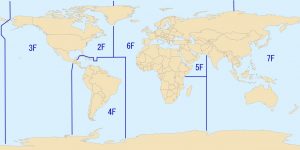Daily Comment (May 8, 2018)
by Bill O’Grady and Thomas Wash
[Posted: 9:30 AM EDT] It’s a quiet morning in a very busy week. Here is what we are monitoring this morning:
The Iran deal: The president will announce his Iran decision at 2:00 (EDT). Although we expect him to end U.S. participation in the pact, it is unclear what he will actually do with the withdrawal. Will he delay resuming U.S. sanctions? Will Europe go along? Given the mercurial behavior of President Trump, even after the announcement it is possible it won’t be completely clear what has occurred. The White House seems to believe that ending the Obama agreement will prompt Iran to renegotiate with the Trump administration. We think a more likely outcome is that Iran threatens to “race for a bomb.” However, Iran knows that actually having a bomb might trigger a nuclear response from Israel.[1] Thus, it may refrain from racing to the bomb, making it clear the nuclear program was a bargaining position all along. Simply put, after the announcement, things could get complicated quickly and a “drop dead” position isn’t likely. That explains why oil prices have declined this morning. Ending the deal is bullish for oil but maybe not as immediately bullish as recent market action has signaled.
The 2nd Fleet returns: The 2nd Fleet was deactivated in 2011. It was part of the Atlantic Fleet, covering the U.S. East Coast (see map below). Its primary mission was to defend the eastern U.S. from Soviet naval incursions; for example, it was heavily involved in the Cuban Embargo in 1962. It was also responsible for training at the Naval Station Norfolk. It was decommissioned in 2011 in an effort to husband resources.

The resurgent Russia has led the administration to recommission the fleet, a recognition of the growing threat from Putin.
A hawkish turn: As we have noted, San Francisco FRB President Williams is going to take over for NY FRB President Dudley on June 17. Thus, Williams’s position will be vacant after that date. Until the San Francisco FRB selects a new president, Mark Gould, the first VP at the bank, will be acting president. According to Federal Reserve rules, Gould can participate in the discussion but cannot vote on policy. Instead, rules require that an alternative from one of the non-voting regional banks vote in San Francisco’s place and it just so happens that Esther George, the KC FRB president, will fill that role. George is perhaps the most hawkish member of the FOMC. Although this won’t change the June vote (fed funds futures put the odds of a rate hike at 100%), she might push for increases in the meetings without a press conference. Although we suspect she would be outvoted, she could dissent which would give the meetings a more hawkish tone. She will continue to vote until the San Francisco FRB appoints a new president.
Italy: President Mattarella has asked the political parties in Italy to allow him to form a non-partisan caretaker government after negotiations following recent elections have led to a stalemate. The caretaker government would rule Italy until (a) new elections are held, or (b) the parties form a new government. The announcement has raised fears that choice (a) will be selected, meaning that another round of elections may lead to another chance for a populist government to gain a majority. Fears of another vote have pressured the EUR and sent Italian bond yields higher this morning.
[1] There are two reasons behind this thought. First, Israel has stated on numerous occasions that a nuclear-armed Iran is an existential threat. If that statement is more than rhetoric, Israel should react strongly before Iran actually has a deliverable weapon. Second, Israel’s air force cannot conduct a long conventional air campaign by itself that can guarantee the elimination of the nuclear threat. Thus, if the threat is really existential, it should use its poorly kept secret nuclear capacity to attack Iran. We believe Israel’s real goal is to quietly threaten to use nuclear weapons as a way to draw the U.S. into a conventional air campaign against Iran, and the U.S. does have the capacity to conduct a massive air war that could dramatically reduce Iran’s nuclear program.


